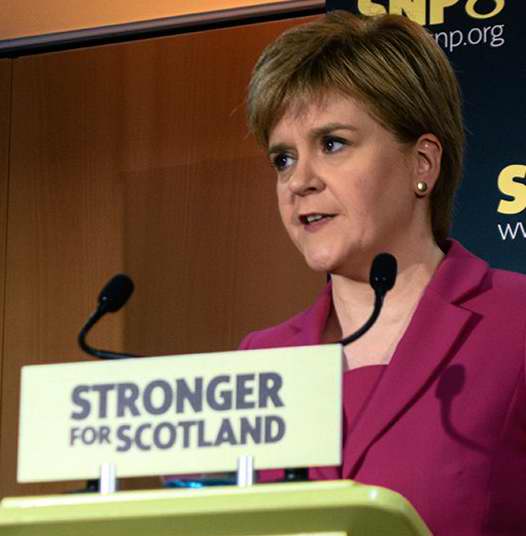Nicola Sturgeon: getting on with the job
By David Livey

Today Nicola Sturgeon delivered a speech on Scotland’s future, and launched the first phase of the SNP’s new independence initiative.
Here are the key points from the speech.
A firm focus on the big challenges
While the Tories dither in Westminster, the Scottish Government is getting on with the job of good government, with a firm focus on the big challenges ahead.
Next week the Scottish Government will publish the Programme for Government for the year ahead. It will include measures to support the Scottish economy through Brexit uncertainty; tackle the attainment gap, equip our NHS for the challenges of the future, and much more.
Protecting Scotland’s interests in Europe
Nicola Sturgeon made clear the Scottish Government will do all it can to protect Scotland’s relationship with the EU.
As the UK government develops its position ahead of triggering Article 50, the Scottish Government will use its influence to shape the best (or least bad) outcome for Scotland, and the UK as a whole. That means the UK continuing as a member of the Single Market. Find out more about what that means here.
The expert group appointed to advise the Scottish Government on Scotland’s relationship with Europe is working on a range of options to protect what matters most to Scotland, and considering the new powers Scotland would need to make these options work.
The biggest listening exercise in the SNP’s history
Nicola Sturgeon launched the first phase in our new independence initiative – the biggest listening exercise in our party’s history, which will reach out to 2 million people in Scotland before St Andrew’s Day. The information and insight we gather will inform the next stage of our campaign.
Members of the public can take part in The National Survey to give their views on Europe, Brexit, and independence, and set out concerns and questions they have.
The SNP’s 120,000 members have been challenged to engage with five people each month for the next three months. This will take place alongside doorstep activism, and town-hall events throughout the country hosted by SNP parliamentarians.
A new Growth Commission
A new Party Growth Commission will inform thinking on how growth can be sustained in the post-Brexit climate. The Commission will consider a programme to grow Scotland’s economy and reduce the deficit in the context of independence, as well as monetary arrangements.
While its work will inform SNP policy, the group will seek views from across the political spectrum. The full membership of the Commission will be published alongside its remit within the next two weeks, and will draw on a range of economic, academic and business expertise.
Article Source: http://www.snp.org/nicola_sturgeon_s_speech_getting_on_with_the_job
